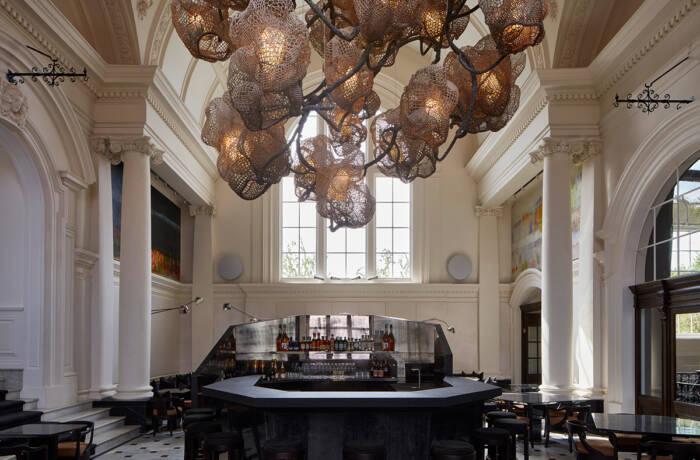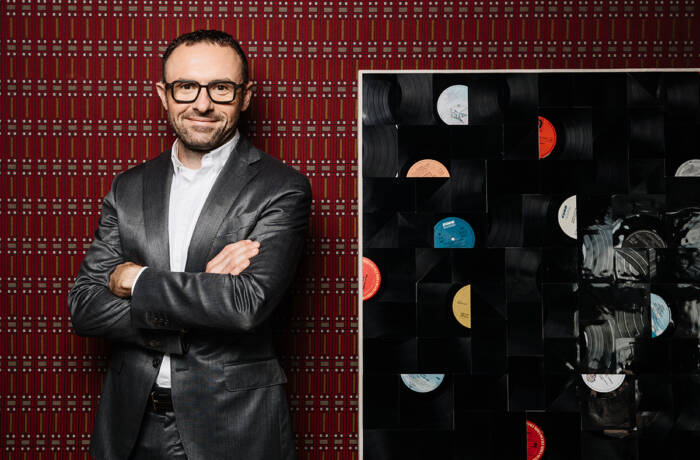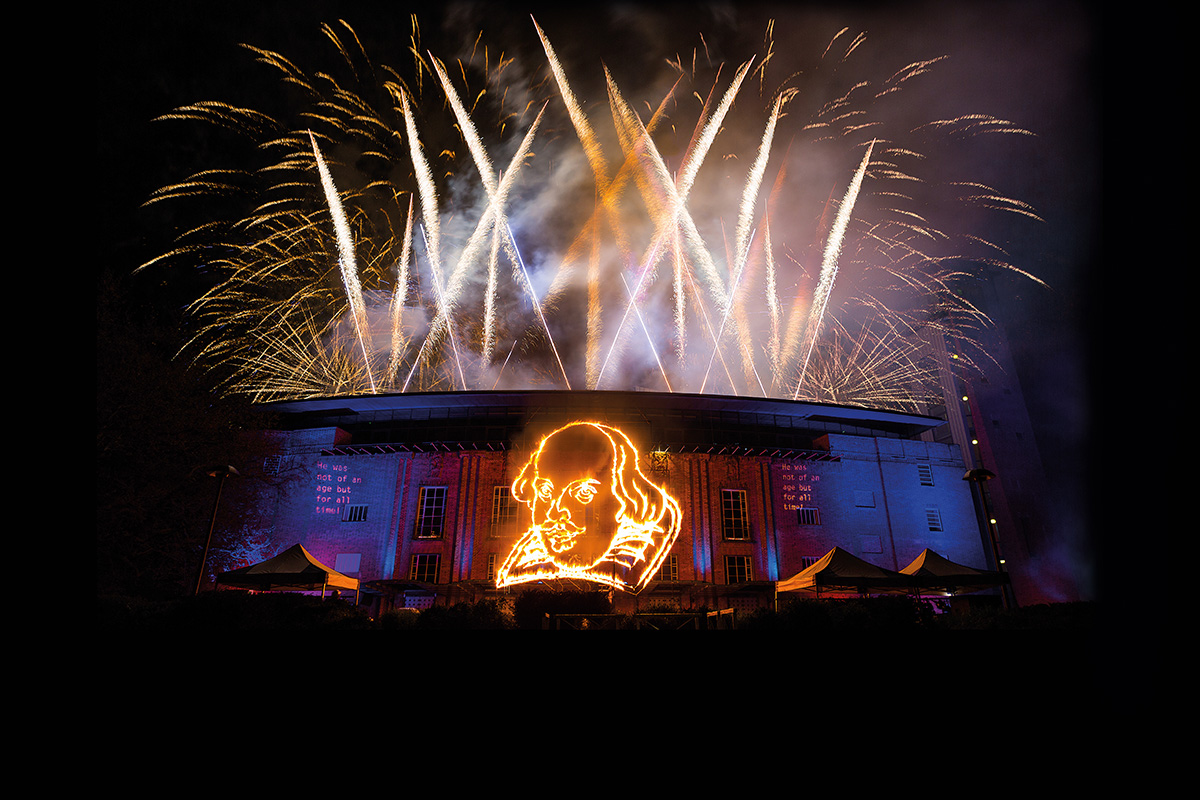
Celebration for the 400th anniversary and Shakespeare Live, 2016. Photo by Lucy Barriball
The mass closure of theatres in recent years has signified the loss of a vital creative touchpoint for audiences around the world. How, indeed, are theatres to continue captivating spectators with their doors closed? Samantha Welsh speaks to Catherine Mallyon, Executive Director of the Royal Shakespeare Company (RSC), about how the global heritage brand is weathering that storm – and has emerged from it thriving. From interactive online shows to its Next Generation talent development programme, the opening of its new theatre in Stratford to its ongoing work with schools, Mallyon reveals that the RSC’s future is more exciting than ever

Catherine Mallyon. Photo by John Bellars
LUX: From city trader to leader in arts administration: was this pivot by accident or design?
Catherine Mallyon: Entirely by design! I wanted to develop professional skills for arts administration and thought finance was a good place to start. Having said that, I ended up undertaking a range of roles within the bank and found it fascinating.
LUX: As Executive Director of the Royal Shakespeare Company, would you say that you are managing a global heritage brand?
Catherine Mallyon: I’d certainly agree that we are a global brand with a strong heritage, but the Company is a forward thinking, innovative and contemporary industry leader. I believe that people associate the RSC with excellence, innovation, and ambition in all the work we do. And of course, great entertainment. We believe that all societies are richer if everyone has access to great theatre. Our mission is to inspire and captivate audiences wherever they are, and to transform lives through amazing experiences of Shakespeare’s plays and great theatre.
Follow LUX on Instagram: luxthemagazine
LUX: How can the next generation help, whether as patrons, or as managers of tomorrow?
Catherine Mallyon: We have a Next Generation talent development programme and a very active Youth Advisory Board – all young people from backgrounds and areas that have little access to theatre or careers in theatre. The focus is to give them the chance to explore a career in acting, directing or working backstage, but also developing their leadership skills so they can make their way in a career in the arts and be tomorrow’s leaders.
We have trained generations of the very best theatre makers but recognise that young people from low income backgrounds remain under-represented across the industry. We work with over 150,000 young people through our Associate Schools programme, alongside our 12 partner theatres. This work is in depth and long-term and demonstrates the power of Shakespeare and the arts to impact on young people’s lives and futures. They are very much involved in shaping the work that we do, and we hope their involvement helps to develop a lifelong love of theatre and Shakespeare.

From The Magician’s Elephant. Photo by Manuel Harlan
LUX: UK government funding for the arts has plummeted in recent years. Why is it important to counteract this?
Catherine Mallyon: School is where first encounters with Shakespeare are guaranteed to happen for all children in England and Wales, and 50% of school children around the world. These formative experiences can define how we feel about Shakespeare and theatre for the rest of our lives. We therefore place a special emphasis on working with children, young people and teachers in primary, secondary, special schools and colleges.
We have compelling evidence built over many years that demonstrates Shakespeare’s plays taught using approaches inspired by the way RSC actors and directors work in the rehearsal room can have a significant impact on young people. It raises aspirations and attainment, develops resilience and confidence, promotes wellbeing, inclusion and a sense of belonging in individual children, parents, whole school communities and in adults.
LUX: Do you see the arts as soft power?
Catherine Mallyon: Theatre and the performing arts are British assets of global significance. The UK Box Office alone generates £1.3 billion per year and theatre directly employs 290,000 people. Britain’s 1,300 active theatres draw a combined audience of 34 million people – twice that of the Premier league. We can achieve so much with a strong, inclusive and vibrant arts sector.
LUX: How did the Board manage to minimise losses over the last 15 months?
Catherine Mallyon: Covid has impacted all our areas of our operations. We lost the majority of our income overnight and had to do everything we could to minimise losses. We adapted swiftly so that we could continue to serve our communities. We offered a range of activity including launching the Royal Shakespeare Community online, offering Homework Help to children, young people and their parents; we continued to work online in communities with our network of partner schools and theatres; we performed outdoors to socially-distanced audiences in our Dell Gardens; and continued our nationwide programmes of talent development and young Shakespeare Ambassadors with young people from backgrounds currently under-represented in our workforce.
We’re delighted that our sponsors and partners continued to support and collaborate with us on our digital, Learning and community programmes and we can now welcome them back to live performances on stage with the opening of our temporary outdoor theatre – The Lydia and Manfred Gorvy Garden Theatre.
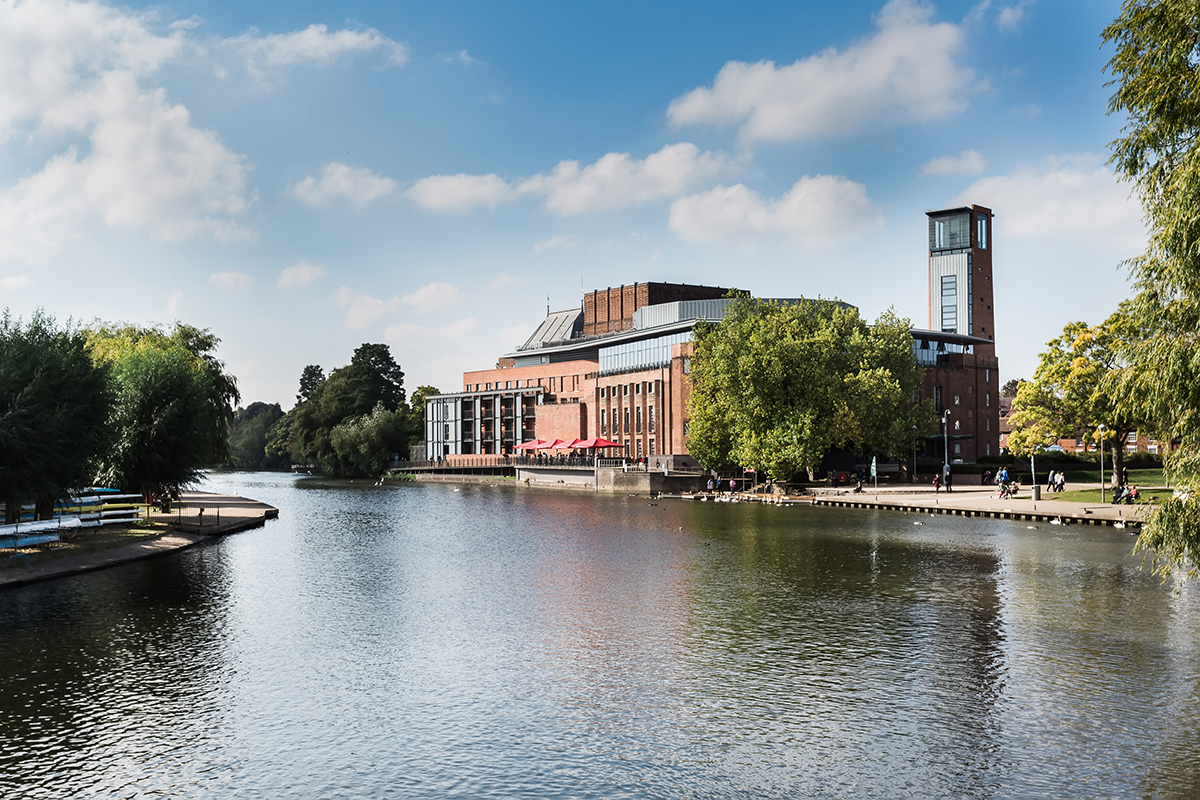
Royal Shakespeare Theatre. Photo by Sara Beaumont
LUX: Which productions have been most commercially successful in recent years?
Catherine Mallyon: Far and away it has been the wonderful Matilda The Musical – it has won 99 international awards and is still the thing to see in the West End. It came back to celebrate its 10th birthday this autumn. Our productions of Wolf Hall and Bring up the Bodies were also extremely successful, and we were thrilled to present The Mirror and the Light this autumn alongside Playful Productions.
Read more: Nayla Al Khaja on filmmaking and female empowerment
LUX: And artistically speaking, which productions would your Artistic Director say have broken new ground?
Catherine Mallyon: Audiences experienced a new performance environment easily accessed on their mobile, desktop or tablet with Dream, led by the RSC and created in collaboration with 15 partners including Manchester International Festival, Marshmallow Laser Feast and the Philharmonia Orchestra. The performance used the latest gaming and theatre technology together with an interactive symphonic score that responds to the actors’ movement during the show. We learnt a huge amount from that project and it was a fantastic collaboration.
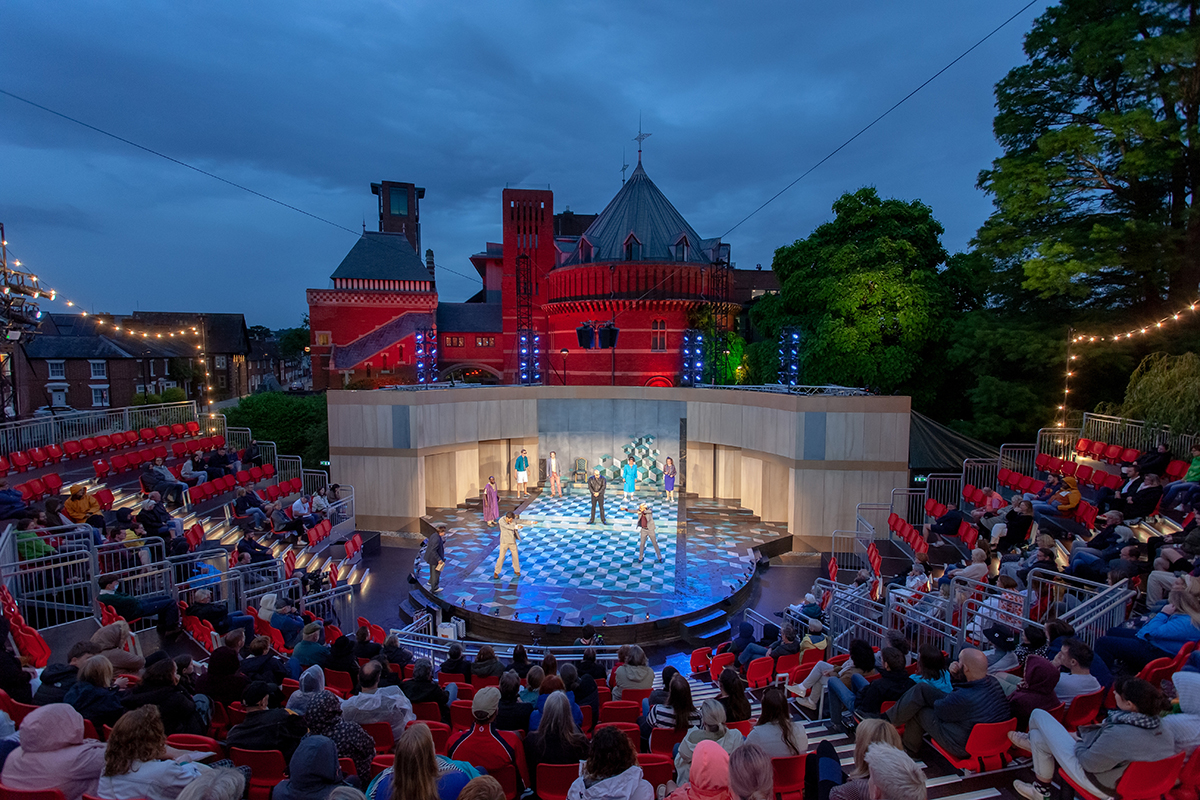
The Comedy of Errors, July 2021. Photo by Pete Le May
LUX: With theatres reopening, the RSC has launched its fourth theatre in Stratford-upon-Avon. Tell us more!
Catherine Mallyon: It is very exciting to finally have audiences back at on-stage performances. The new, outdoor Lydia and Manfred Gorvy Garden Theatre was a brilliant way for us to welcome audiences back as many have told us that they are nervous about returning to an indoor setting. It can seat up to 500 people but we performed to a reduced capacity over summer. It’s a beautiful setting by the banks of the River Avon and with the Royal Shakespeare Theatre and Swan Theatre directly behind. The Comedy of Errors looked fantastic on the stage.
Catherine Mallyon is the Executive Director of the Royal Shakespeare Company (RSC)


